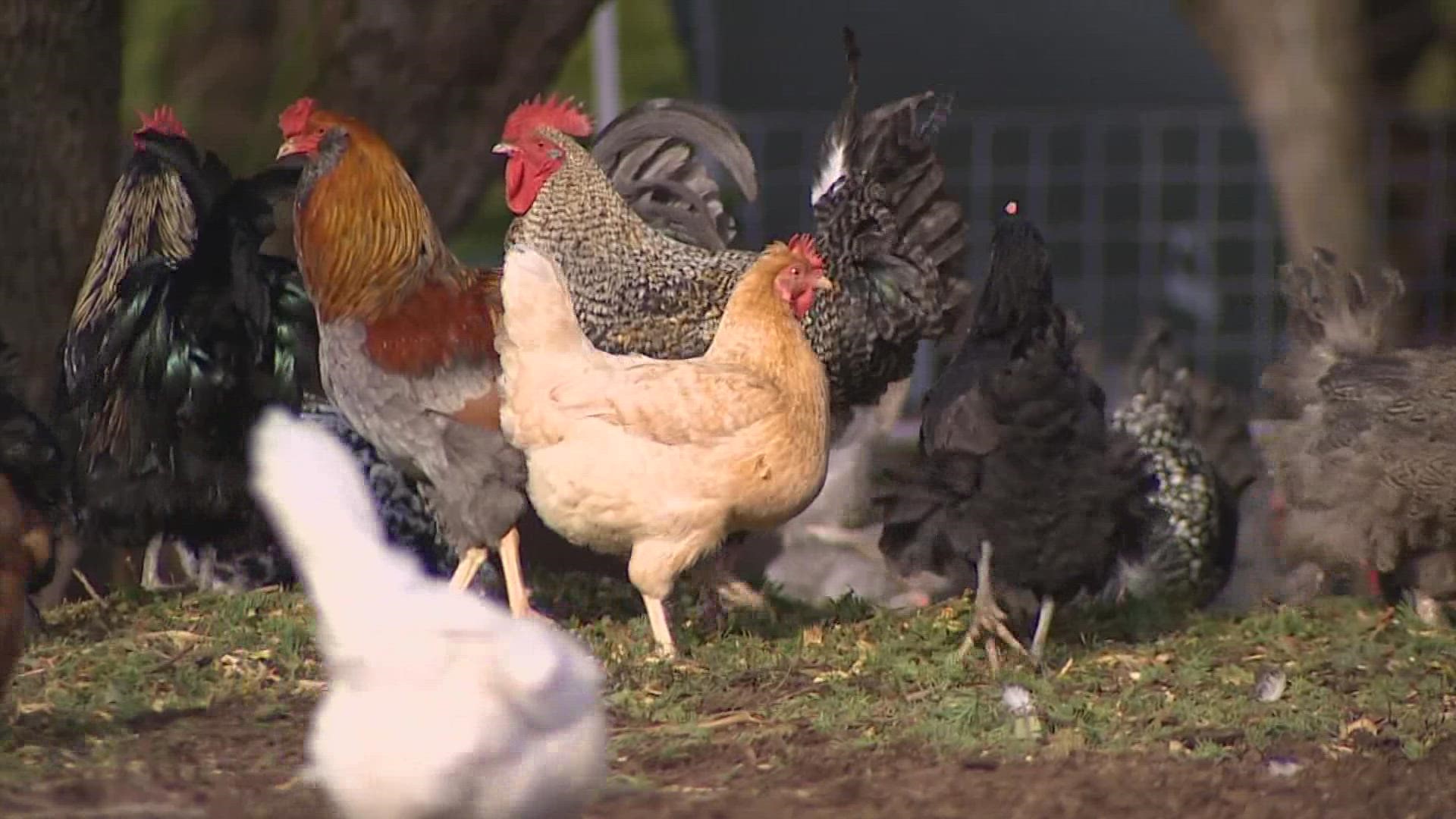REDMOND, Wash. — Fewer eggs and higher prices have been a growing trend in western Washington.
This comes with the latest data from the Centers for Disease Control and Prevention estimating nearly 58 million commercial and backyard birds have been affected by the Avian Flu across the country this past year.
KING 5 spoke with Chelsea Carrigan, the owner of Red Barn Farm in Redmond. Carrigan said they’re one of the lucky ones and have not had any of their birds infected. However, Carrigan said they’re still on high alert.
“The Avian Flu has definitely impacted us a lot and I think everywhere else, it’s definitely been a challenge,” said Carrigan.
It's a challenge Carrigan has been taking on since May of 2022 when the avian flu was first detected in the state.
According to the Washington Department of Fish and Wildlife as of Dec. 14, there were 94 positive cases of Avian Flu in the state.
“One, like, wild bird coming into their chicken run and the next thing you know ten birds, 20 birds, 30 birds, they’re just dropping dead,” said Carrigan.
Carrigan said they had to shut down agritourism in fear of the flu coming to her farm. She’s also tried to cover their run as much as possible so wild birds wouldn’t come in. On top of the Avian Flu having its impact, she believes the unpredictable seasonal changes have also been a leading cause of her chickens struggling to lay eggs.
“Eighteen eggs some days. When we were usually getting 15 to 18 dozen this time last year,” said Carrigan.
She said with the lack of production and an increase in costs for chicken feed and cartons have led her to increase her own prices, which one nearby breakfast staple has already been dealing with for months with their own supplier.
“Outrageous as you’ve seen at the grocery store, you're paying a lot more for your eggs and all your breakfast products,” said Anne Harris, the manager of Redmond Family Pancake House.
Harris said in her 30 years of working at the restaurant she’s never seen eggs cost this much. She estimates her suppliers have increased prices for eggs by about 60%.
But Harris said that’s just the price of doing business, and it’s much better to have eggs in house than to be scrambling looking for them at the market.
“Hope that people will continue to come in and eat the eggs,” said Harris.

